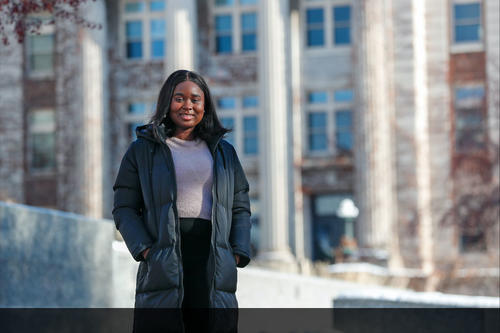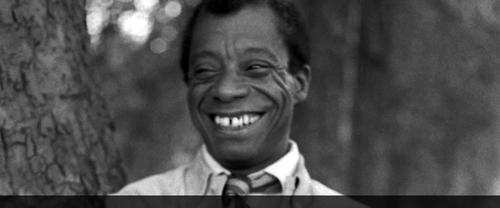
Encountering Baldwin
Megan Finch reads James Baldwin “to think rather than to substitute thought.”
Megan Finch is an assistant professor in the Department of English, in the College of Liberal Arts, at the University of Minnesota. What follows is extracted from her recent responses to questions regarding her ongoing engagement with the work of James Baldwin.
Can you describe your first encounter with James Baldwin’s work?
Prof. Finch: I first encountered James Baldwin’s work in a graduate course on race and sexuality where we read Notes of a Native Son (1955), Baldwin’s first collection of essays, and Giovanni’s Room (1956), his second novel. I was intellectually preoccupied with matters of literary form, and Baldwin was, at the time, most interesting to me for what I understood to be his critique of Richard Wright's naturalism.
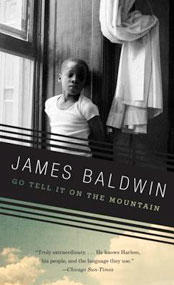
Go Tell It on the Mountain (1953)
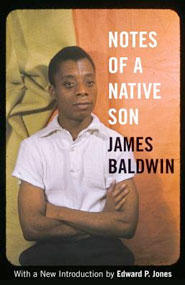
Notes of a Native Son (1955)

Giovanni's Room (1956)
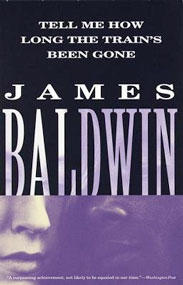
Tell Me How Long the Train's Been Gone (1968)
How has your perspective changed through this (ongoing) encounter?
Prof. Finch: The more I live with more of Baldwin’s words, the more I find myself trying to think through two paradoxical strategies of making sense of his corpus. On the one hand, I am a proponent of recognizing that the changing political landscape he wrote through (from the race novel to Reaganomics) shifted Baldwin’s perspective, though not as much or in the ways that many (white and black often for different reasons) liked. On the other hand, by attending to the shifting emphases, the language that crystalized and that which gave way, we might gain greater analytical clarity into what Baldwin understood as the lie of whiteness and the blackness constructed in relation to it. And, therefore, insight into the way it asks us to see ourselves (which is not to say that those visions are unfailingly accurate).
I spend a lot of time thinking about, and sometimes getting pushback on, what I read as the significant limitations of Baldwin’s thought in regard to gender. (See his conversation with Audre Lorde or, to my reading, pretty much any of his female characters). I look forward not only to teaching Go tell it On the Mountain in a graduate seminar but also to discussing it with my dad in a semi-impromptu book club we have going.
What questions might Baldwin ask us now?
Prof. Finch: I think of Walt Whitman as paradigmatically a question asker; I’m not sure that I conceive of Baldwin that way. But whether it's framed as what questions he would ask or what he would say/write, my answer would be the same: who knows and who knows if we would care. By the time Baldwin wrote Tell Me How Long the Train’s been Gone, he was explicitly reckoning with the possibility that while his political beliefs and social aspirations had never been in lock step with Civil Rights orthodoxy, he was nonetheless unable to fully commit himself to the new Black power movement (and even this was not a stable position, nor “should” it have been).
Baldwin remained ambivalent about terms like gay and queer, preferring the complex freedom of humanity, which his novels suggest is most fully expressed by sex between men. How would he have engaged contemporary queer theory when, on the one hand, his refusal of normativity is in line with concepts foundational to it, while on the other, the figure of Baldwin’s refusal, the human, is often turned away from in queer theory? What would he, having had Toni Morrison’s Beloved with him but, due to illness, unread just before his death, have to say about that work or the turn in Black studies to slavery as an explanatory site? What would his critiques of whiteness, coupled with his understanding of humanity and his “encouragement” of Styron (a white Southerner’s) writing Nat Turner’s confession, have to say about current conversations on cultural appropriation? How Baldwin would have reacted to any of this, or to the first Black president or to “Black Lives Matter,” is beyond my capacity, or desire, to know or guess.
Returning, somewhat queerly, to Walt Whitman, in this case to the Whitman of Allen Ginsberg’s “A Supermarket in California,” I am interested in how, like Ginsberg's Whitman, Baldwin is conjured in the present; unlike Ginsberg, I don’t have any interest in that magic.
Starting points for change
“Read all of Baldwin and use them as resources to think rather than to substitute thought.” -Megan Finch
ENGL 5300: Readings in American Minority Literature - James Baldwin
Meet the people behind the story
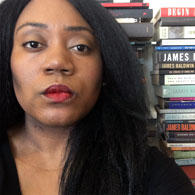
Megan Finch, PhD
Assistant Professor, Department of English, College of Liberal Arts
- Categories:
- Education
